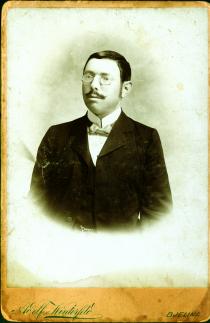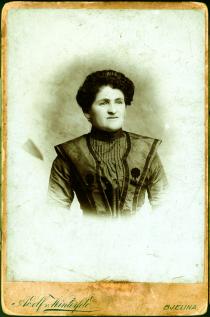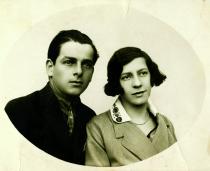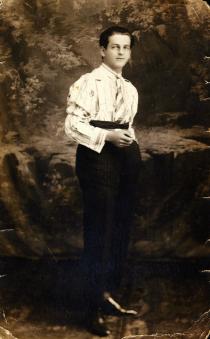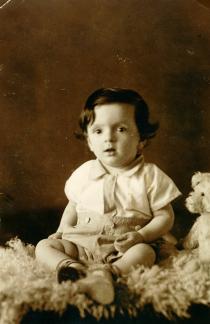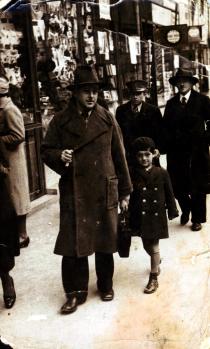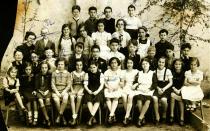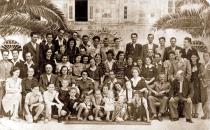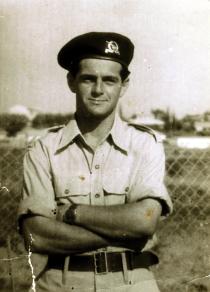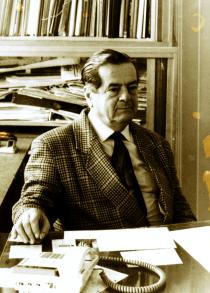Me in Israeli Army, Netanya, 1952.
In May 1948 Israel was declared a state and preparations began for Aliyah. Whoever wanted could sign up to go, the government at the time did not make any problems for anyone. My sister went on the first Aliyah in December 1948. Two months before she had married and she went with her husband and his parents to Israel.
I did not want to go but my uncles in Argentina pressured us that after everything that happened Jews could once again be declared guilty for the world's troubles and they persuaded my mother. In the meantime, my sister contacted us and told us that our relatives and old-timers received her nicely. When she left she was already three months pregnant and in June she had her first son. I had work which I liked very much and from which I lived very well, we had a nice small apartment.
However, my relatives managed to convince us and my mother began to yearn for her daughter. We registered and came to Israel in July 1949 even though my sister wrote that we should not come because there you are a gentleman and here you will be just a worker. This did not bother me. I thought I would stay a little, learn about the situation and when I returned I would be a little expert on the Middle East. We traveled six days from the 6-12 of July. In Haifa they sent us to the reception camp 'Sent Lux'. All of the people my age were immediately mobilized into the army, but since I came by myself I was not taken. From this camp we were transferred to another one closer to Jerusalem, so that we could be closer to my sister and our relatives. We were in these buildings another two or three months, but I still did not have work even though before that I had worked in the larger reception center in Bet Lit at the end of Natanya.
One of our people who came on the same boat as me gave me a job. He was a professional cook and he got me work in a bar in Tel Aviv. The owner asked him if he knew someone and he remembered me. I worked as an assistant in the kitchen and as a dishwasher for two months. Then we went to Jerusalem and found an apartment in the old part, a Jewish apartment in an Arab-style house. We had permission to bring all our things with us.
Only those who had paintings had to seek special permission. The apartment had three rooms. Then I read in 'Hitadut ole Jugoslavia' that a locksmith was looking for an assistant. His name was Laci Balok. I thought I needed to learn some trade. He had a workshop, we made keys, fixed stoves, made frames for doors. I worked almost a year with him and then I was advised to go into the army. I went in October 1950 and I came out in December 1952. I was in the army for 26 months and after demobilization I registered in Jerusalem.
Again I did not have a trade, so I worked as a collector for a political party, until a friend of mine suggested that I learn a good trade which is valuable everywhere. It was zincography in the best printing house in Jerusalem, with Mihael Pinkovski, a Russian emigrant. We agreed that even though most trades are learned in four years that I would learn everything in two years because I was no longer young enough to be an apprentice. I did this until I left Israel.

